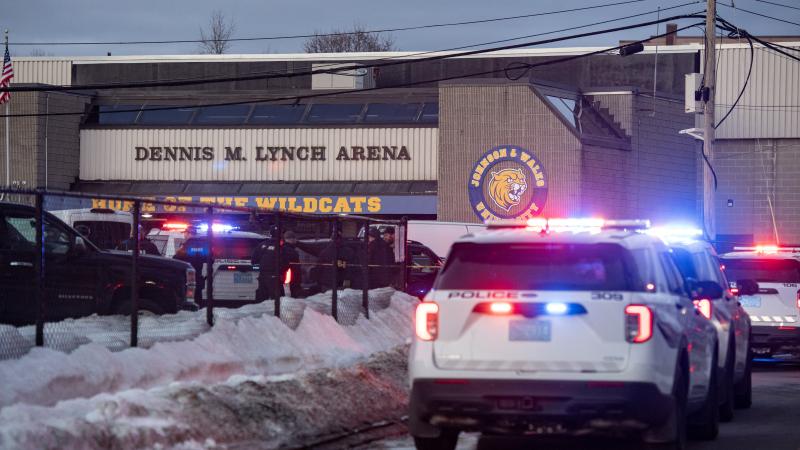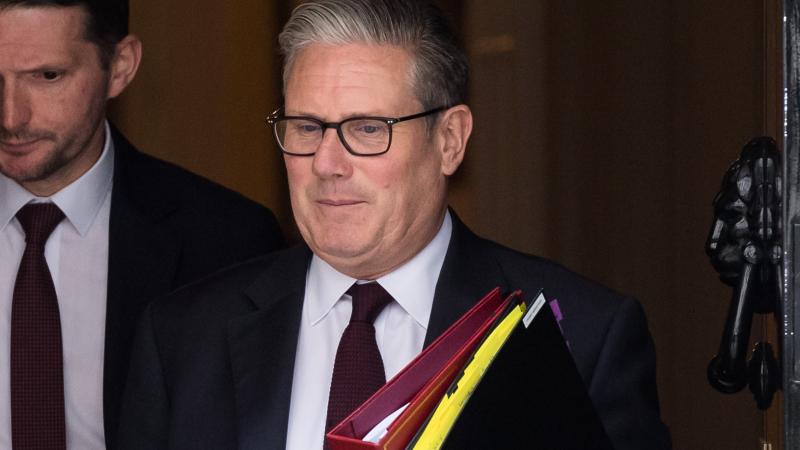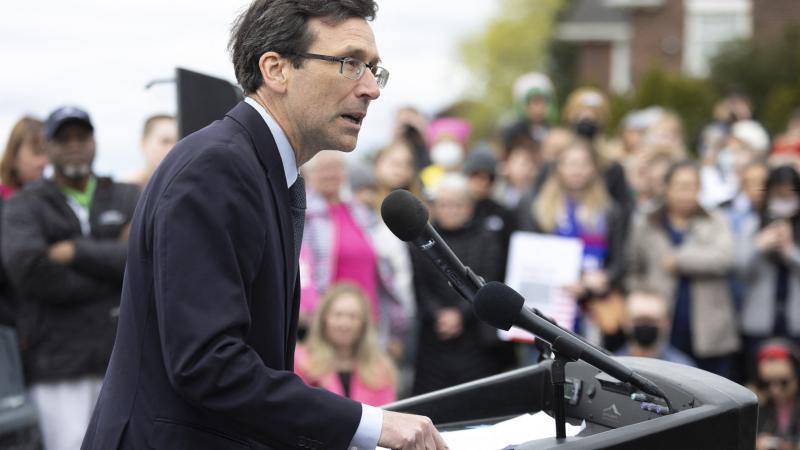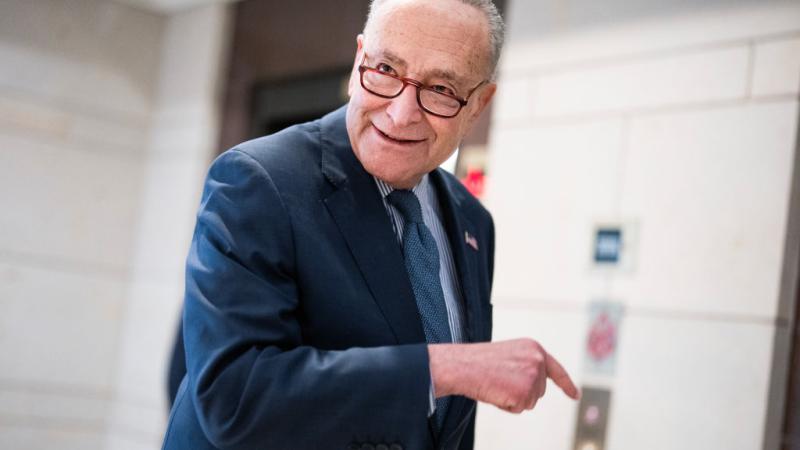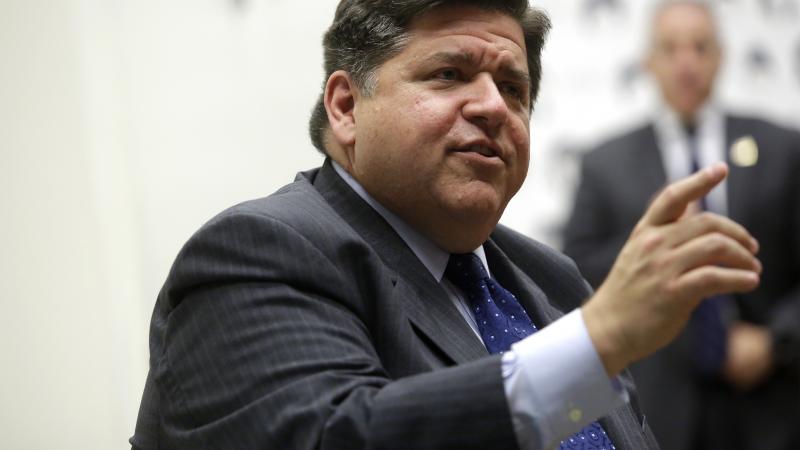FBI ‘misled the public’ in claiming 2017 GOP baseball shooting wasn’t domestic terror: House Intel
The report concludes the FBI's doubts about the shooting being an act of terrorism was based upon falsehoods, half-truths and manipulations of the known facts
The FBI “misled the public” for years in claiming a sniper's attempt to kill Republican congressmen at a June 2017 baseball practice was "suicide by cop”, when it was in fact domestic terrorism, according to a new congressional report released Tuesday.
The 27-page House Intelligence Committee report concludes “the FBI’s bottom line – ‘the FBI does not believe there is a nexus to terrorism’ – was based upon falsehoods, half-truths, and manipulations of the known facts.”
FBI Director Kash Patel announced in April that he had handed over to Congress long-sought bureau records related to the shooting at a ball field in northern Virginia.
The GOP-led Intelligence panel said in the report Tuesday that Patel's cooperation is "a welcome change from previous FBI leadership, who thwarted Congressional oversight and public accountability at every turn, however, after reviewing the case file, the Committee could not be more disappointed by the FBI’s incomplete investigation and substandard analysis in 2017.”
James Hodgkinson, a left-wing activist from Illinois, shot four people in the June 14, 2017, attack, including Louisiana GOP Rep. Steve Scalise. He reportedly asked GOP congressmen who had left the practice early, and before the attack, whether the players were Republicans or Democrats. He died a day after a 10-minute shootout with police. The members of Congress were practicing for an annual charity game.
The FBI concluded the attack was “suicide by cop” instead of domestic terrorism — a position the bureau did not reverse until 2021, and a position the FBI has never fully explained.
“Whatever its political purpose, the FBI’s starting position was that the shooter was suicidal, hoping to die by gunfire with police. It appears to the Committee that investigative efforts and intelligence analysis then attempted to reinforce the ‘suicide by cop’ argument despite the clear and contrary facts of the case,” the new House report concludes.
“The FBI case file makes clear this case was a premeditated assassination attempt on Republican congressmen by a radical, left-wing political extremist, who was seeking to affect the conduct of our government.”
The GOP-led House Intelligence Committee said that “from Russian collusion to Anomalous Health Incidents, political considerations appear to have been the primary factor in analyzing facts for end-use intelligence products” and that “this high-profile case is no different.”
Democrats on the House Intelligence Committee said that they had “significant differences” on the Republican majority’s finding that the FBI had politicized this investigation.
“The report identifies no evidence that political considerations played a role in the delayed determination to classify the attack as domestic terrorism,” the Democrats said. “Indeed, the decision to publicly attribute the attack to domestic terrorism was taken only after the change of administration in 2021.”
Hodgkinson’s gunfire struck Scalise in the hip, hit lobbyist Matt Mika in the chest, and injured two Capitol Police officers, Crystal Griner and David Bailey. Scalise nearly bled to death and required multiple surgeries before returning to Congress.
The FBI declared just a week after the shooting that it did not consider the baseball shooting a terrorist attack, saying, the bureau was "investigating this shooting as an assault on a member of Congress and an assault on a federal officer" and that "the FBI does not believe there is a nexus to terrorism.”
The new House report states the FBI "then spent the next four years privately guarding the basis for its determinations by impeding Congressional oversight. It was not until the FBI was investigating January 6 protesters and the application of Congressional pressure that the FBI changed course.”
After renewed public pressure by House Republicans, the FBI began moving toward acknowledging the 2017 shooting was an act of domestic terrorism.
Republican congressmen for years harshly criticized the 2017 decision by the FBI, led in an acting capacity at the time by Andrew McCabe, not to label the shooting by Hodgkinson as domestic terrorism despite his targeting of elected Republican leaders as they practiced for the annual Congressional Baseball Game.
McCabe, who was deeply involved in the FBI’s politicized and baseless Crossfire Hurricane investigation, had taken over the FBI after the May 2017 firing of former FBI Director James Comey, who himself had played a key role in the false Trump-Russia collusion saga.
Hodgkinson, an avid leftist and supporter of Democratic presidential primary candidate and Vermont Sen. Bernie Sanders, was killed by law enforcement after the attack. Infuriated by Trump winning the 2016 election, he had posted on Facebook that “Trump is a Traitor. Trump Has Destroyed Our Democracy. It’s Time to Destroy Trump & Co.” and had joined other groups such as “Terminate The Republican Party” and “Join The Resistance Worldwide!!”
The FBI did not begin to move away from its baseless "suicide by cop" claims until years after McCabe was gone and well into the tenure of then-FBI Director Christopher Wray.
During a late-April 2021 hearing in front of a House appropriations subcommittee, Jill Sanborn, the executive assistant director of the FBI’s National Security Branch, acknowledged it was an intentional attack on lawmakers and that, if it had happened in 2021, Wray’s FBI would now consider it to be domestic terrorism.
The next month, the FBI acknowledged the 2017 shooting had now been classified as “domestic terrorism” carried out by a “domestic violent extremist” targeting Republicans.
The FBI’s acknowlegement appeared in the middle of an appendix on page 35 of a 40-page FBI-DHS joint report released in May 2021 and titled “Security Strategic Intelligence Assessment and Data on Domestic Terrorism.”
In a section describing approximately 85 different “FBI-Designated Significant Domestic Terrorism Incidents in the United States from 2015 through 2019,” the baseball field shooting appears, with the FBI categorizing the perpetrator as a “Domestic Violent Extremist” and describing the incident as “an individual with a personalized violent ideology targeted and shot Republican members of Congress at a baseball field and wounded five people.”
Unlike the FBI, Alexandria’s top prosecutor, Bryan Porter, was able to quickly determine that the shooting was politically-motivated, releasing a report in October 2017 concluding the shooting was clearly terrorism.
“The evidence in this case establishes beyond a reasonable doubt that the suspect, fueled by rage against Republican legislators, decided to commit an act of terrorism as that term is defined by the Code of Virginia,” the report read. “The suspect, using a lawfully-purchased assault rifle and handgun, ambushed a peaceful assembly of people practicing baseball and began to fire indiscriminately in an effort to kill and maim as many people as possible.”
The House intelligence panel said Tuesday that it initially received 2,500 pages from the FBI in late March and then another 1,900 pages in mid-April.
The new House report also concluded that “1) the FBI investigation failed to substantively interview eyewitnesses to the shooting; 2) the FBI investigation failed to develop a comprehensive timeline of events; and, 3) the FBI case file was improperly classified, which may have assisted the FBI in obfuscating its substandard investigative efforts and analysis.”
The new House committee report said that “while the FBI does not define ‘suicide by cop’ or explain their determination that Hodgkinson’s motive most aligns with an act of suicide by cop, the Committee finds the FBI’s conclusion to be inconsistent with the facts and evidence.” Indeed, the GOP-led panel said, “since there were no uniformed police officers present at the time of the attack and Hodgkinson had no reason to believe there were police present, the suicide by cop determination does not make sense.”
The new report argued that “the FBI’s unsupportable determination that Hodgkinson’s motives were suicide by cop should not have precluded the FBI from considering the vast evidence within its case file that supports a conclusion that Hodgkinson was a domestic terrorist.”
The GOP-led House Intelligence Committee also recommended that it “should consider legislation that establishes criminal liability for the politicization of intelligence analysis.”
But Democrats on the House Intelligence Committee said that they “strongly disagree with the recommendation to consider criminal charges against intelligence analysts” because “nothing in the report or in the record provides any predicate for such a proposal, and even the discussion threatens to chill objective analysis and candid assessments.”
The GOP-led intelligence panel also revealed that “the FBI’s case file includes fact after fact indicating Hodgkinson was carrying out a plan to impact government policy or the political system by targeting Republicans” and that “that was Hodgkinson’s motive, not simply to die by a cop’s bullet.”
“After all, chronologically, Hodgkinson was upset with President Trump’s election, took a concealed carry firearms class, told friends and family they may not see him again, left his wife in Illinois, drove with his firearms to Washington, D.C. ‘to protest,’ cased the Eugene Simpsons Park baseball field for two months, and then confirmed the presence of Republican congressmen before using his firearms to shoot more than 70 rounds at Republican congressmen and staff,” the new report said.
The Secret Service’s National Threat Assessment Center said in an October 2017 report that, just after 7AM the morning of the shooting, Hodgkinson walked across the street to the baseball field. The soon-to-be shooter approached two House Republicans — then-Congressman Jeff Duncan and then-Congressman and now-Governor Ron DeSantis — who were by their car getting ready to leave early. Hodgkinson “asked them whether those practicing were Republicans or Democrats” and “the representatives confirmed they were Republicans.” Hodgkinson then “thanked them and returned to his van, where he retrieved his rifle, two clips holding 80 rounds, and his pistol.”
Hodgkinson had a long history of hating Republicans — often those in Congress.
The Secret Service wrote in October 2017 that he “openly shared his anti-Republican views with friends, family, and others.”
“In the few years leading up to his attack, Hodgkinson made numerous written statements criticizing Republican policies and ideology, as well as statements directly criticizing specific public officials, including congressmen and former Republican Presidents of the United States,” the Secret Service wrote. “The communications were through calls or emails to his congressional representative, letters sent to the local paper, and comments or re-postings of articles or political comics on Facebook or Twitter. On Facebook alone, he posted such statements three to four times per week.”
Notably, Hodgkinson purchased one of the two weapons he used in the attack just days after President Donald Trump defeated former Secretary of State Hillary Clinton in the 2016 election.
The Secret Service said that, just one week after the November 2016 election, Hodgkinson “legally purchased the Smith & Wesson M&P Shield 9mm semi-automatic pistol that he later used in his attack in Alexandria.”
Porter, the Alexandria prosecutor, said in his report that Hodgkinson fired at least 70 rounds during his attack — 62 rounds from his rifle (purchased many years prior) and eight rounds from the handgun purchased shortly after Trump’s 2016 victory.
The Secret Service wrote that “during the presidential campaign and following the election, others noted changes in his behavior as he became increasingly unhappy, angry, and more politically charged.” Alexandria’s commonwealth attorney also wrote in October 2017 that “Hodgkinson held strong political opinions and was very unhappy about the outcome of the 2016 presidential election.”
The shooter also had a longtime affinity for Democrats, and Hodgkinson was a strong supporter of Senator Bernie Sanders — who quickly condemned the attack when it occurred.



